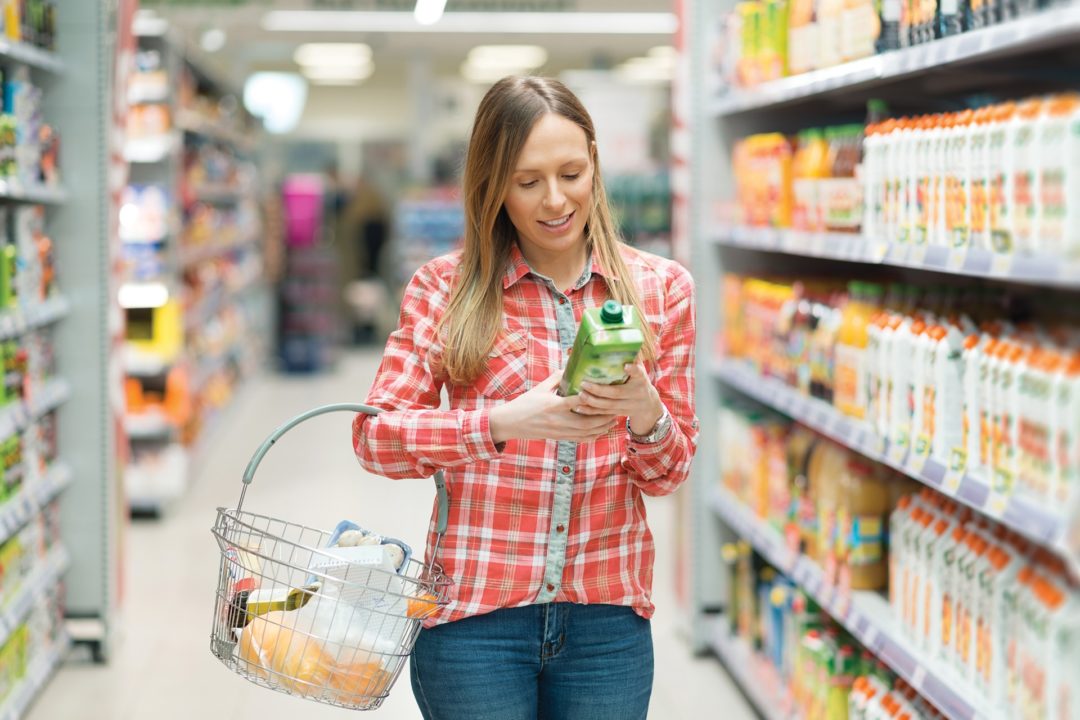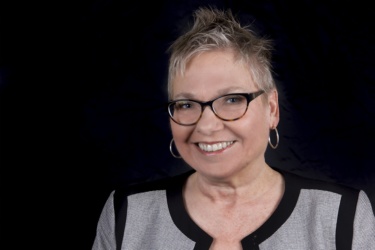While the demo did not walk off as the winning presentation, it did get attention for the Ada, MI-based startup at the food technology trade show. Capitalizing on the trends of single-serve packaging and wireless device charging, the concept employs a heat sensor and radio-frequency ID (RFID) tags, bringing an Internet of Things (IoT) sensibility to the humble process of warming soup for lunch. It takes a little bit longer, but uses 90% less energy than a microwave. Plus, you can do it anywhere.
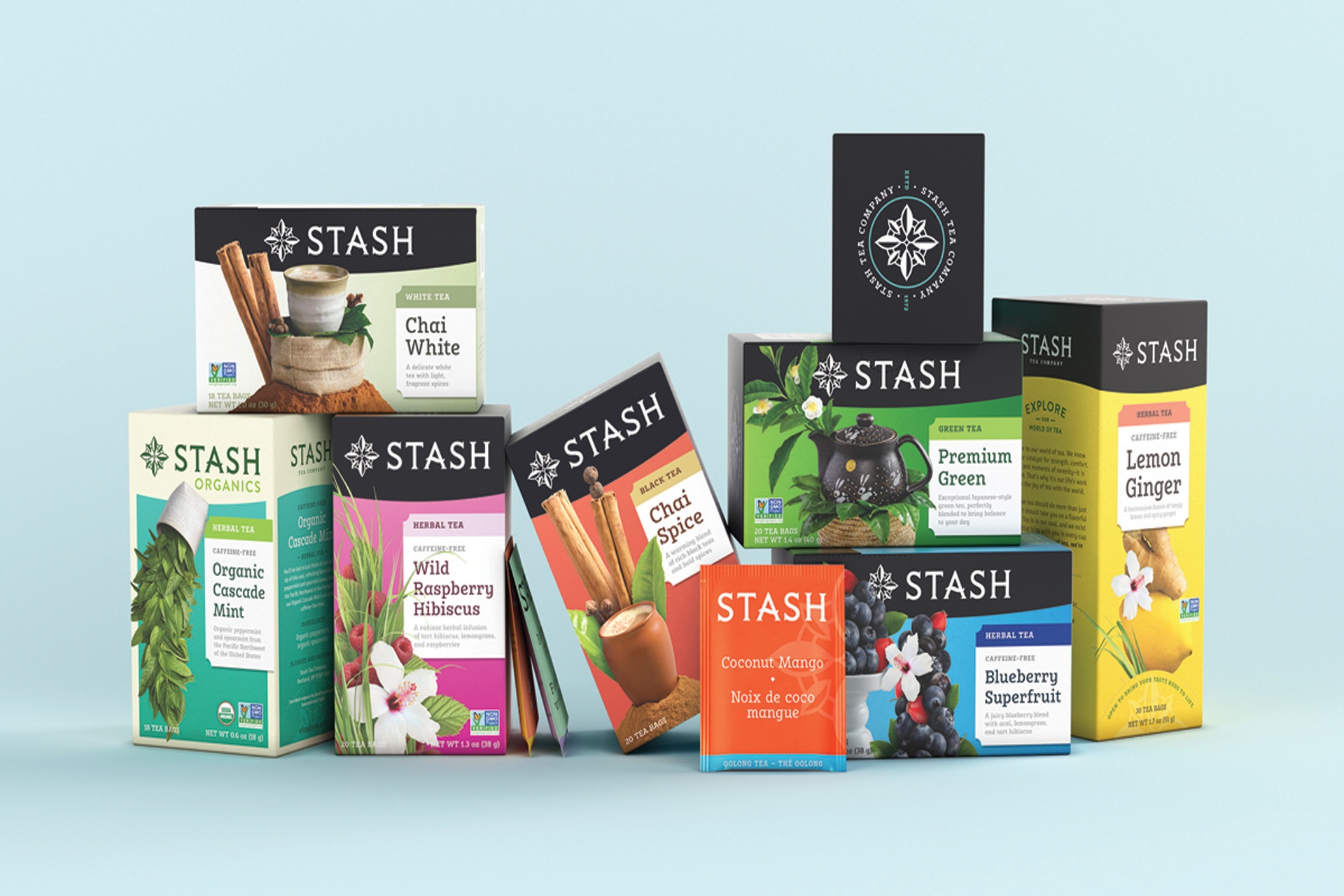
“Convenience has been the number one consumer trend globally for the last decade,” Clark said. “Consumers are seeking products that save them time and make even small tasks easier. We’re saving the consumer a trip to the kitchen to guess how long they should put things in the microwave.”
While Inductive’s packaging may be a bit in the future, it will appeal to millennials, who also love food products that have no waste. They are paying attention to packaging like never before.
In fact, a study by EcoFocus about the general grocery shopper population indicates an emerging, trend-setting segment of shoppers is consciously making their purchase decisions based on packaging materials and now make up 59% of the population. This is an increase of 16 percentage points from 43% in the past five years.
On a MissionProtect Our Breasts is a non-profit with a mission to share the conversation about chemicals in everyday products found on the grocery shelves that contribute to breast cancer. It is putting a special focus on packaging and is strategically spreading the word through social media.
Meghan Ayles, director of POB’s Influencer Network, based out of the University of Massachusetts Isenberg School of Business, says the group considers themselves advocates, not activists. They have launched a science-based awareness campaign on Instagram and other social media platforms to educate young women about the chemicals in the environment that can affect their odds of developing breast cancer.
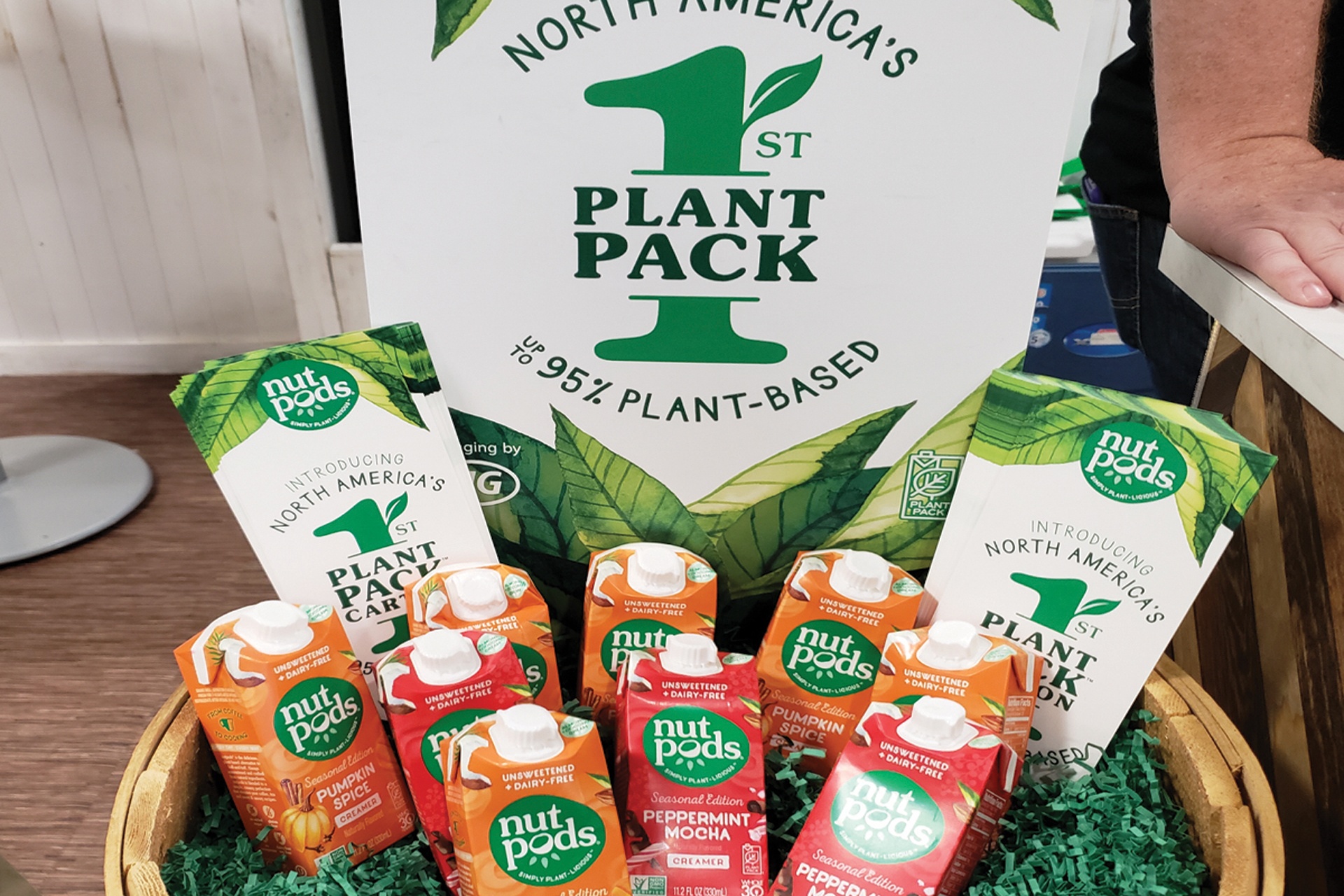
“We notice packaging all the time,” says Ayles, “and we highlight those who care.” POB, which currently has chapters in 17 schools, has created a series of infographics it is distributing socially. The plan is for their website protectourbreasts.org to become a clearinghouse for reliable science. It kicked off a campaign in October. Here is one of its Instagram posts:
“Bisphenol A (BPA) is a known endocrine disruptor that is found in many plastics. Today, many people use plastic water bottles or other plastic bottles to hold liquids such as iced teas, kombucha, and other kinds of flavored drinks. Protect Our Breasts highly encourages the use of glass or stainless steel water bottles filled with filtered tap water to prevent the leaching of chemicals into our everyday products such as plastics marked with #3, 6, and 7.”
POB, working in conjunction with Dr. Jane Muncke, managing director and chief scientific officer of the Food Packaging Forum in Switzerland, has created a new affidavit system to aid in the vetting process of plastics and packaging. It was developed based on the new Food Safety Alliance for Packaging /Institute of Packaging Professionals list of chemicals that should not be used or be minimally used in the packaging of products due to their migration capacity. (That list can be found at https://bit.ly/2GvXEUA)
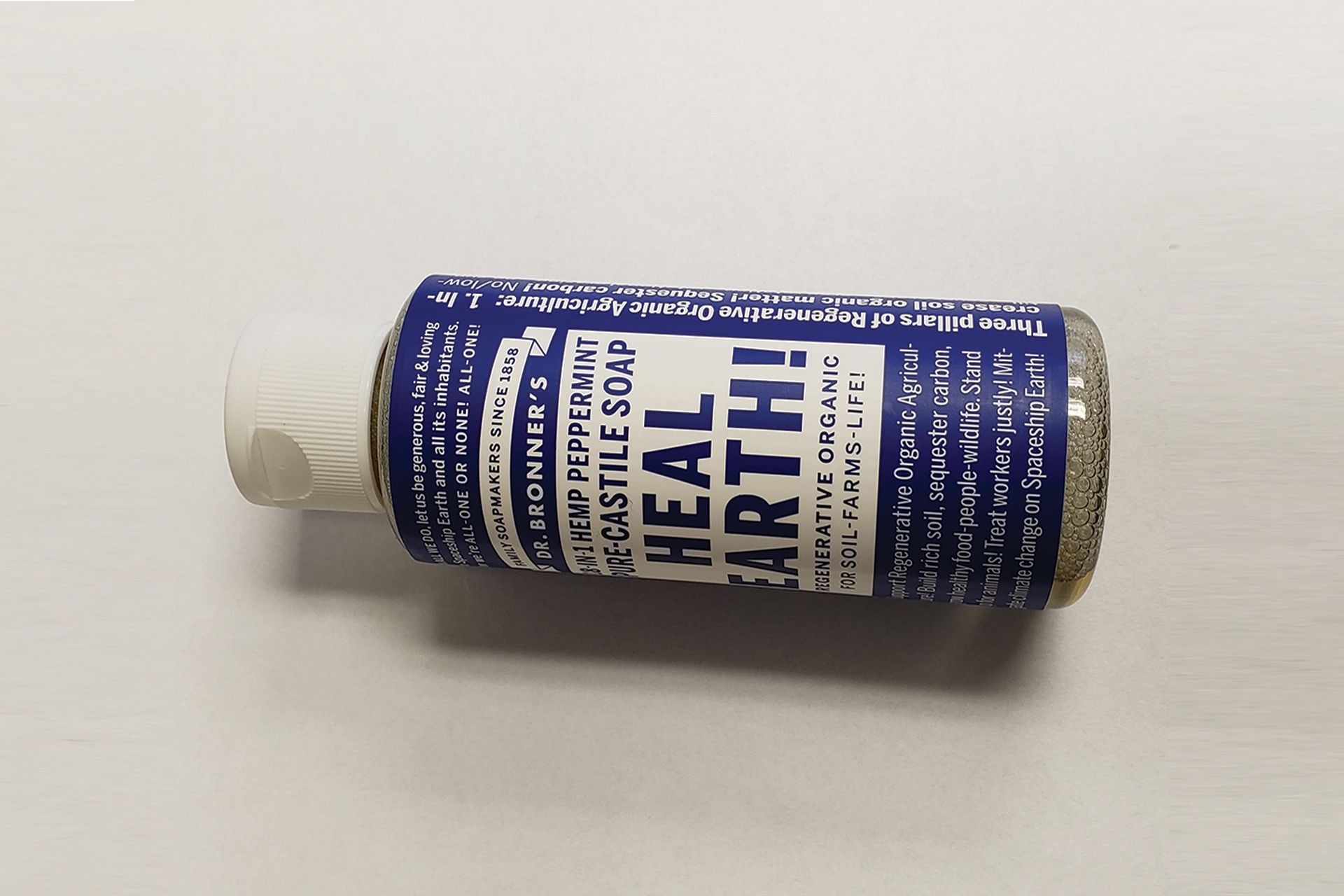
The goal is that by sharing education and knowledge, by taking baby steps, POB can effect change to get scientists to help bring about safer packaging.
“When we spoke about this at Expo [East], a number of companies came up to us and really wanted to know more,” said Cynthia Barstow, founder and executive director of POB. “It really is a big breakthrough.”
The list of chemicals was created by a number of companies including Nestle, Mars and Wrigley, who were willing to take ownership and get behind the list, which gives it more weight with other manufacturers, Barstow says.
At baseline, a company must be certified organic. POB will then send the affidavit, which the manufacturer shares with its packaging company. If it passes the “chemicals of concern” test, POB will acknowledge the company on its website and in a promotional campaign.
POB is launching a promotional campaign with Dr. Bronner’s, which passed the process before the official program began. (Figure 2) Barstow said the hope is that this will accelerate interest on the part of others.
Rebranding with the TimesStash Tea, the premium tea maker founded in 1972 and now a member of the Yamamotyoama tea company, unveiled a rebrand and completely redesigned packaging this year. (Figure 1)
“Giving the ingredients center stage emphasizes our commitment to using only natural, healthy ingredients to create delicious and unique flavors,” said CEO Nami Yamamoto. While one goal was to rethink how the packaging looks on store shelves, the other was to better communicate Stash’s long-standing core values in a category attracting lots of attention from new brands.
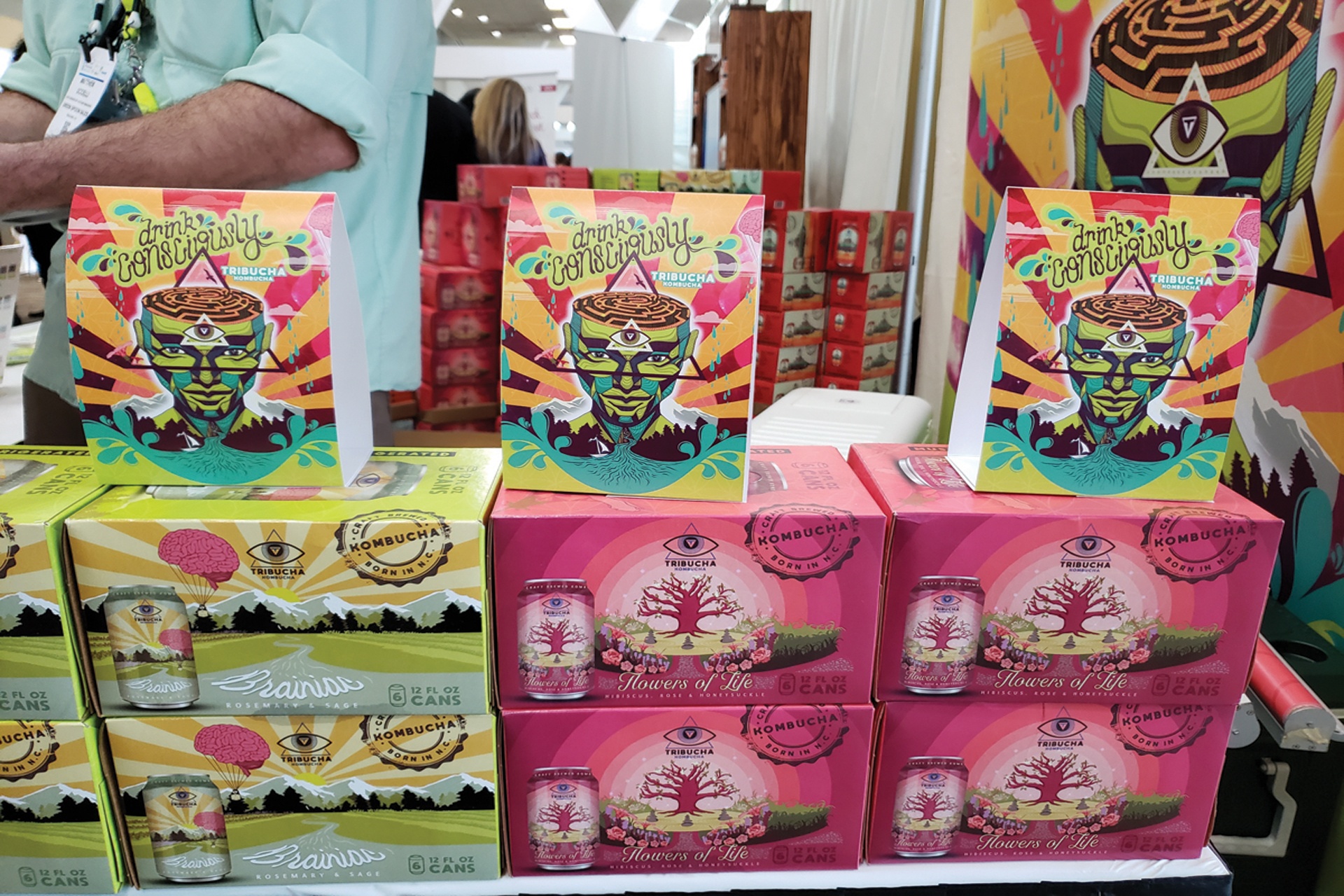
The existing compass rose logo was streamlined and adorned with tea leaves—establishing a new visual identity. The compass is meant to inspire consumers to look to their daily cup of tea to help them find their “true North” and a sense of balance in today’s busy world. The packaging also reflects the two new certifications the company acquired – Project Non-GMO Verification for all tea bag blends and B Corp certification for its commitment to positive change and thoughtful business actions and continued pursuit of green packaging, ethical sourcing, employee well-being and community involvement.
Perhaps reflecting the heightened interest and growing competition in the tea category, Traditional Medicinals also released a product redesign at Expo East.
Responding to Market DemandsCarow Packaging in Crystal Lake, IL, specializes in caps, pumps and sprayers. President Steve Carow says the boom in essential oils has led to high demand for its all-in-one Euro Drop dispensing system. For essential oils and herbal extracts, bottles can be turned upside down and held in a vertical position with the drop formed by the center spout of the dropper. This technique replaces the standard eye dropper pipette.
Berlin Packaging is using plant-based resins rather than petroleum-based ones because of the market demand for more recyclable materials.
NutPods, a plant-based creamer, introduced at Expo East a 95% plant-based package, created by SIG. This PlantPack Carton, it says, is the first in North America. (See figure 3) Xela Pack, which offers a line of “tineys”is seeing more demand from food manufacturers and introduced a “wide mouth” for its one-ounce and half-ounce packages. (See figure 5) The company has a recycling statement in place, says packaging consultant Terrilynn Damm. It’s also focusing on more retail display and introduced “tineys in a box” suitable for use at the register.
Xela Pack’s environmentally conscious design is roughly a 75 percent paper-constructed packet suitable for HABA, cosmetic and personal care products. It’s also FDA approved for ingestibles such as nutritional products and dietary supplements. It’s popular for household care and sizes range from 5ml – 30ml.
Kombucha maker Tribucha was drawing crowds at Expo East to its display of kombuchas packaged in highly decorative cans and sold by six-pack. (See figure 4) The packaging was designed so that the cans create an appealing visual display when stacked on their side in a refrigerated case.
The product is following the lead of craft brewers who started with glass but are now migrating to cans. The six-packs are many pounds lighter than a comparable case of bottles and each can contains only 12 ounces, meaning there’s more likelihood the product will be consumed in one sitting.
RecyclingAs part of its 50th anniversary initiative, NOW partnered with TerraCycle to support the recycling of its flexible packaging, which includes toothpaste tubes, supplement pouches and food pouches. For every pound of NOW flexible packaging that TerraCycle receives, participants earn $1 that can be donated to their favorite non-profit organization or school.
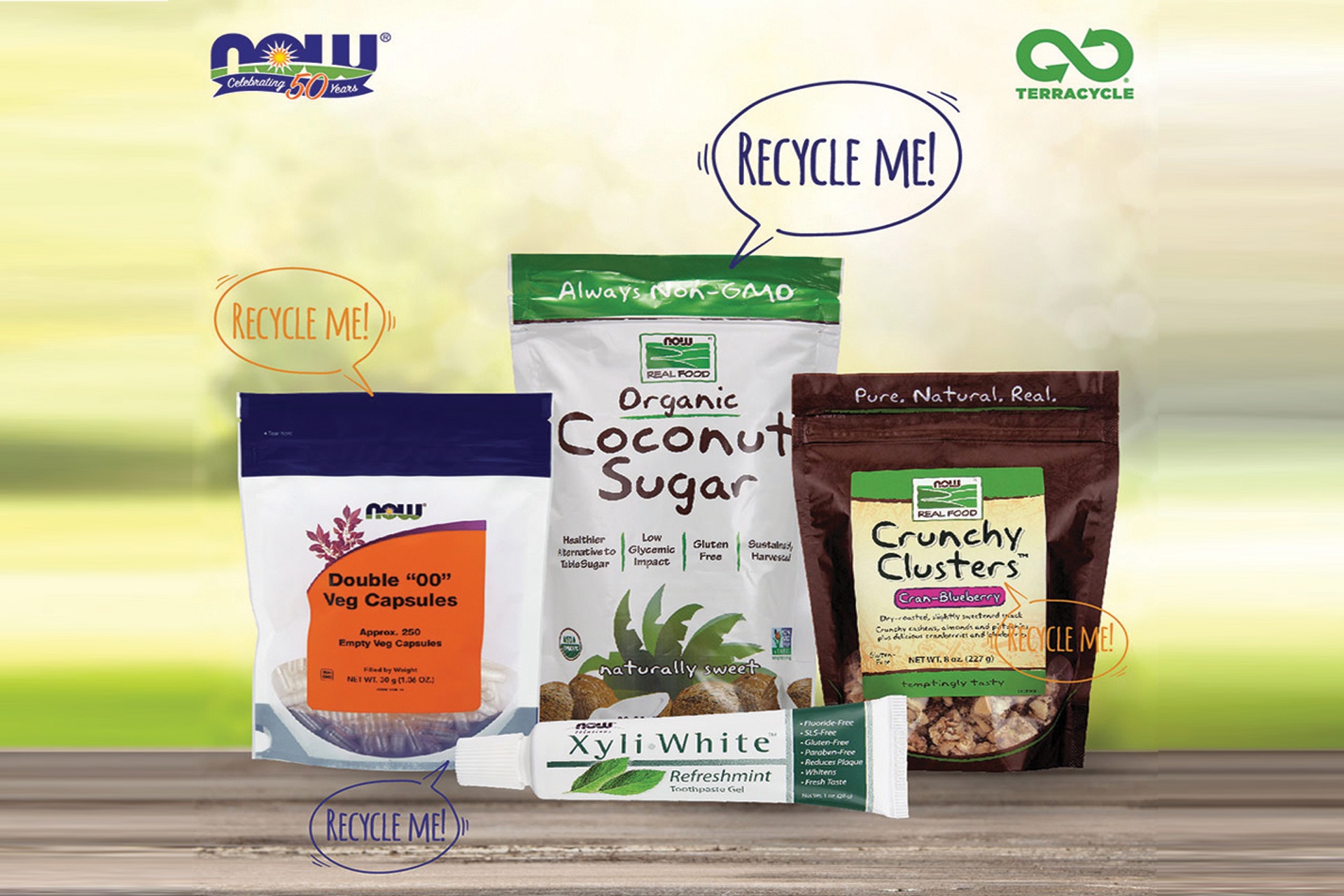
Founded in 2001, Terracycle is an innovative U.S.-based recycling company that recycles non-recyclable and hard-to-recycle materials, keeping these materials out of landfills and incinerators. The company collects and recycles almost any form of waste, and works with individual consumers as well as manufacturers, retailers, small businesses and municipalities.
Food giant Mondelez International in October announced it will switch to all recyclable packaging by 2025 and says it will partner with other groups to encourage collection and recycling of packaging around the world. It will provide packaging manufacturers with design guidelines and a list of materials to use and others to avoid.
“Plastic waste and its impact on the planet is a broad, systemic issue that our consumers care deeply about, and which requires a holistic response,” said Rob Hargrove, EVP of research, development, quality and innovation at Mondelez.
Among the optimizations already in place: Oreo cookie packaging was made 23 percent thinner, reducing the need for nearly 1.5 million kg of cartons per year. In Asia, Middle East and Africa, improvements to secondary packs and shippers for chocolate products saved more than 1 million kg of corrugated paper. In the U.K, Cadbury Heroes tubs were redesigned to use 17 percent less plastic, resulting in 30 percent fewer trucks to transport them.
The company said about 70 percent of its paper-based packaging already comes from recycled sources. Nestle, McDonald’s and Coca-Cola are among other food giants that have stated their commitments to limit plastic waste.
In Australia, soft fruit punnets from Canadian manufacturer CKF are being commercialized by the Fresh Berry brand. The Earthcycle punnets are compostable and recyclable and are 95 percent less plastic by weight than traditional PET clamshells. They can be composted at home or easily recycled. The top-sealed punnets use less plastic by weight than traditional PET clamshells.WF

